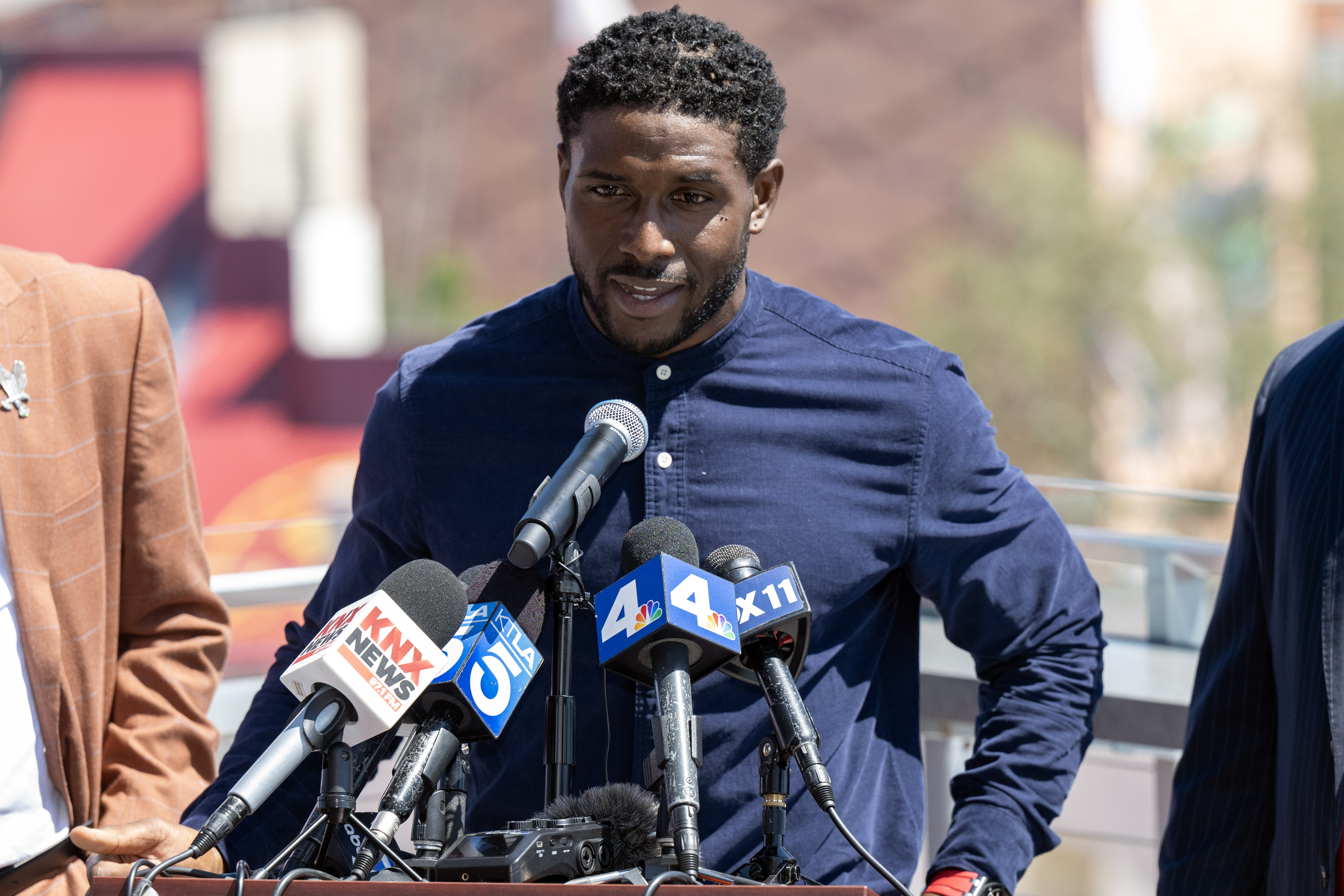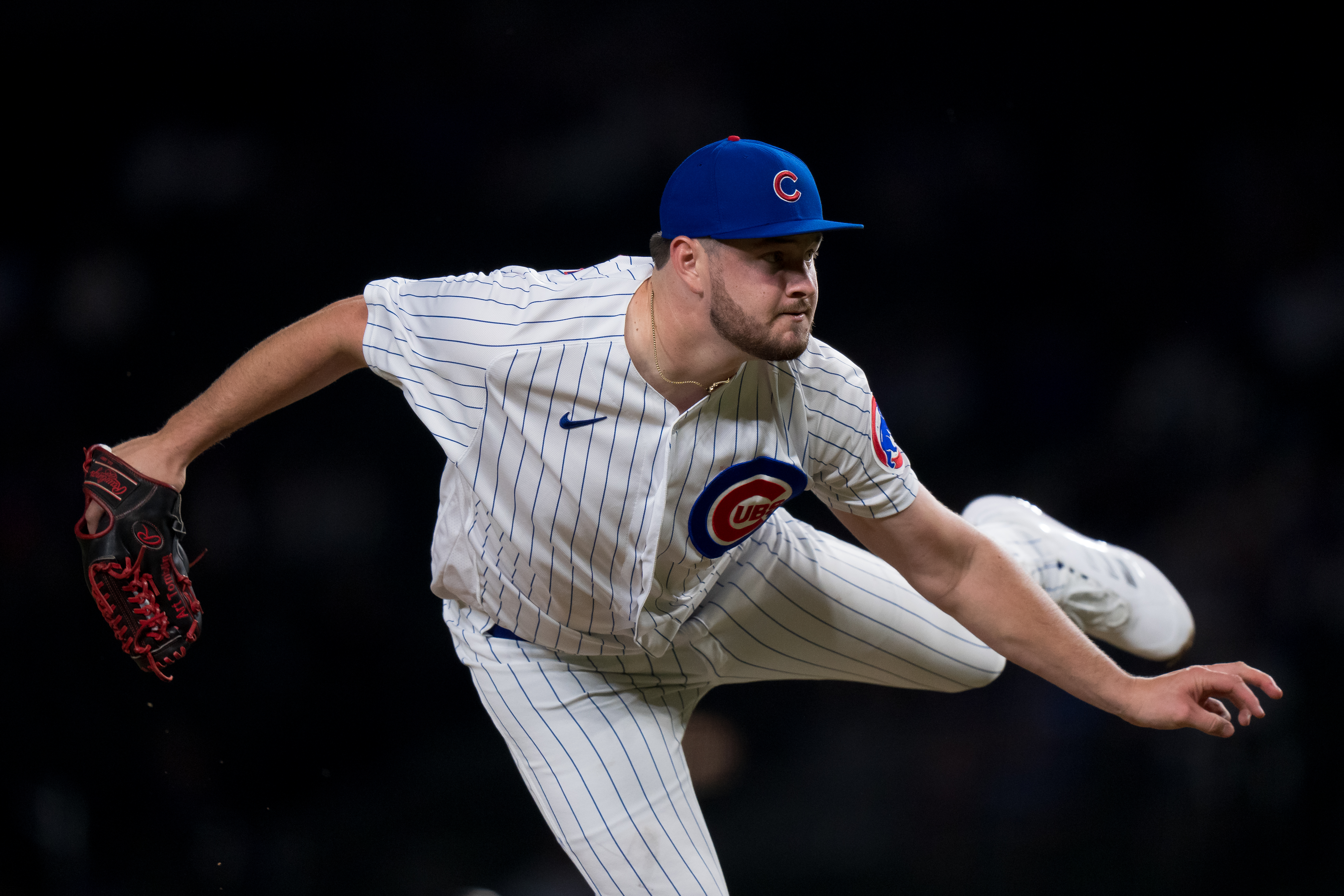If the point was to tell the truth, the whole truth and nothing but the truth, credit Alex Rodriguez with going 1-for-3.
Just as during an interview last week, he was forthcoming about most topics in his first news conference since. Not to mention more convincing by a mile than any other active player -- and most retirees, too -- unlucky enough to get snared in the drug-testing net.
Unfortunately, like almost everything else A-Rod does, his answers were too clever by half.
The problem wasn't owning up to his mistake. He did that over and over.
"For a week, I've been looking for people to blame," Rodriguez said, "and I keep looking at myself at the end of the day."
He admitted injecting performance-enhancing drugs for some 18 months between 2001-03 and, without identifying him, said his supplier was a cousin who first suggested they experiment with "boli," then transported it from the Dominican Republic and became a fellow guinea pig.
But here's the part I'm having a hard time believing. Eight questions in, Rodriguez was asked if he knew he was taking steroids and whether he considered the consequences. This was his answer:
Sports Connection
Connecting you to your favorite North Texas sports teams as well as sports news around the globe.
"I didn't think they were steroids. I mean, that's again part of being young and stupid. It was over-the-counter. It was pretty basic, and, you know, it was really amateur hour. I mean, it was two guys. We couldn't ask anyone. We didn't want to ask anyone. We went outside team doctors, team trainers. It was two guys doing a very amateur and immature thing.
"And we probably didn't even take it right. ... We used to do it about two times a month. I don't even know if that's proper. So when this gentleman asked me about how it affected us, I'm not sure if we even did it right to affect us in the right way. So, all these years, I never thought I did anything that was wrong. Perhaps, but not wrong, and come to find out 'boli' triggered a positive test in '03."
"Boli" is very likely street slang for Primabolan, one of two anabolic steroids (the other was testosterone) which Sports Illustrated reported were found in Rodriguez's 2003 test sample. Known by the chemical name methenolone, Primabolan is not something you would stumble on combing the shelves at GNC, trying to find a replacement for "Ripped Fuel."
It's the kind of substance very sophisticated dopers use, more expensive than most steroids and detectable for a shorter time, with fewer side effects. Taken in tandem with testosterone, part of a routine called "cycling," Primabolan increases strength and adds lean muscle, but little bulk.
Maybe it was just Rodriguez's good luck that he stumbled upon it.
According to his account, he noticed few changes while taking it and none after stopping.
"I'm not sure what the benefit was," he said. "I will say this, when you take any substance or anything, especially in baseball, it's half-mental and half-physical. If you take this glass of water and you say, 'I'm going to be a better baseball player,' if you believe it, you probably will be.
"So I certainly felt more energy, but it's hard to say, hard to say," Rodriguez added, his voice trailing off. "Hard to say."
Maybe so.
But just as Rodriguez cites numbers to support his contention that two of his best seasons -- 1996 and 2007 -- came on either side of using "boli," it's worth examining them during those 18 months, too. Compare A-Rod's average stats from 2001-03 with the averages from the rest of his career and what you find is someone playing a dozen more games each season, with roughly a dozen more home runs and RBIs, and a slugging percentage nearly 40 points higher.
"The only thing that I ask this group today and the American people," Rodriguez said at the end of the 35-minute, question-and-answer session, "is to judge me from this day forward."
Sad to say, but there's no chance of that happening now.
Rodriguez is hardly the only one to blame for the haphazard, piecemeal fashion in which confirmation that the era we just witnessed was supersized. He's only the latest and most credible source to be frozen in the headlights.
He may reap the reward for his honesty 15 years down the road, right about the time he becomes eligible for the Hall of Fame -- assuming enough other players, general managers, owners, trainers and assorted hangers-on come clean or provide the context against which the rest of us can confidently measure their accomplishments.
For the time being, though, we continue to wrestle with the dilemma best expressed as "Who are you going to believe, me or your lying eyes?"
During one of the long pauses interspersed among his answers, A-Rod scanned the crowd of reporters, a number of whom will vote for the Hall of Fame the first time his name turns up on the ballot. He knows how Mark McGwire was rejected, how Barry Bonds and Roger Clemens are likely to be.
"I hope that after my career is over, the evidence falls in my favor. But if it doesn't," Rodriguez said, "I also understand that, too."
That better be the truth, the whole truth and nothing but the truth.
Jim Litke is a national sports columnist for The Associated Press. Write to him at jlitke@ap.org



